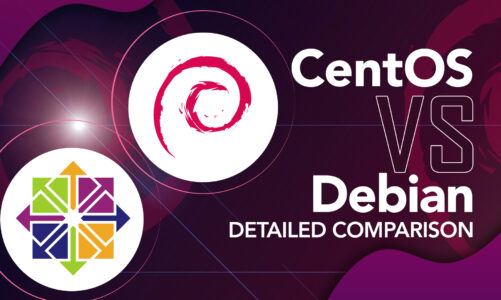If you have knowledge of Linux, then it is likely that you are familiar with Ubuntu, which is recognized as one of the most widely-used distributions globally. However, Ubuntu comes in many flavours, and one of them is Kubuntu, which uses the KDE Plasma desktop environment instead of GNOME. When choosing between the two, one of the main concerns for users is finding a lightweight system that performs well without consuming too many resources.
Many people have thought Kubuntu is lighter than Ubuntu, but is it true or just a myth? Let’s delve into the differences between Kubuntu and Ubuntu and explore which one is the lighter operating system.
Kubuntu vs Ubuntu: which one is lighter?
Although Kubuntu and Ubuntu share many components and are both derived from Debian, they have distinct differences that can help us determine which one is the lighter operating system. Therefore, let’s explore the dissimilarities between the two.
1: Compatibility and System Requirements
Kubuntu and Ubuntu have different hardware requirements, and choosing the right one for your device can impact its performance and stability.
Minimum hardware requirements for Kubuntu and Ubuntu are similar. Both operating systems require a 64-bit processor, at least 2 GB of RAM, and 25 GB of available hard drive space. However, the recommended system requirements for Kubuntu are lower than those of Ubuntu.
In terms of compatibility with low-end and high-end hardware, both operating systems perform well on a range of devices. Kubuntu is particularly suitable for low-end devices due to its lighter footprint, while Ubuntu is optimized for high-end devices and offers better performance on powerful machines.
2: Desktop Environments
Another significant difference between Kubuntu and Ubuntu is their desktop environments. Kubuntu uses KDE Plasma, which is known for its configurability, flexibility, and eye-catching effects. Plasma has a reputation for being resource-hungry, but recent versions have improved their memory usage and optimized their code.
In contrast, Ubuntu uses GNOME as its interface, which presents a sleek and contemporary appearance with a focus on simplicity. GNOME is designed to be intuitive and straightforward, with a focus on touchscreens and gestures. However, some users may find it less customizable and less responsive than Plasma.
3: User Interface
KDE Plasma provides users with a diverse selection of customization features that enable them to tailor their desktops according to their preferences, including widgets, panels, and themes. It also includes a range of tools and utilities for system settings, file management, and multimedia playback.
Ubuntu’s GNOME interface is simpler and more streamlined than KDE Plasma, with a focus on ease of use and minimalism. It has a simple dock for accessing frequently used applications and a search bar for finding files and applications.
Which One to Choose?
Although both operating systems share a common foundation and provide comparable functionalities, there are some variations that might render one of them more appropriate for fulfilling your requirements than the other.
If you prefer a desktop environment that is highly customizable and offers a wide range of visual effects, then Kubuntu’s KDE Plasma desktop environment may be the better choice for you.
On the other hand, if you prefer a more lightweight desktop environment that is designed to be efficient and easy to use, then Ubuntu’s GNOME desktop environment may be the better choice. Additionally, if you require long-term support and reliability for enterprise or commercial use, then Ubuntu’s LTS releases may be the better choice.
Conclusion
So, is Kubuntu lighter than Ubuntu? The answer is it depends. If you have a low-end computer or want more control over your desktop, Kubuntu may be a better choice. If you prefer a more modern and streamlined interface or need a more extensive software collection, Ubuntu may be a better choice.
In any case, both Kubuntu and Ubuntu are excellent distributions that provide a stable, secure, and versatile platform for Linux users.



